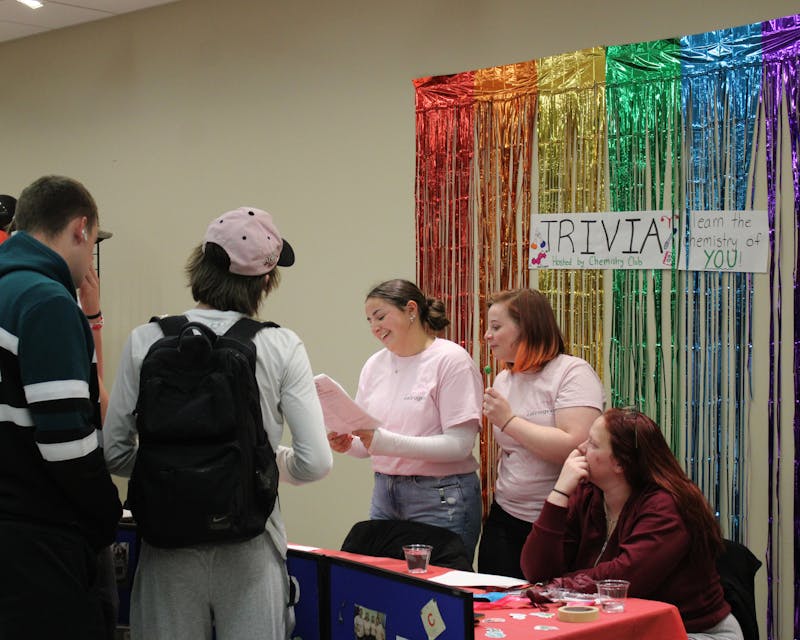University of Connecticutt Professor Gina Barreca demonstrated the power humor has to bring two kinds of people together: the male and the female kind at the Memorial Auditorium.
“Women are still not represented in our culture,” Barreca said, as she put on makeup before her talk Thursday night.
Barreca is not what she calls the fedora wearing, cigar smoking feminist stereotype.
Humor crosses gender lines and allows people to discuss difficult or taboo subjects.
People view things in a similar light with one another through laughter’s community effect, Barreca said.
When Barreca the “Women Whisperer” speaks about women’s senses of humor, she notices men nodding too.
Indeed, both men and women were clapping, laughing, understanding and connecting during the presentation.
Barreca told jokes about how men think.
“A man’s worst fear is a woman asking them what they’re thinking,” Barreca said, “Because it’s probably the extent of, ‘Should I finish this bag of Doritos?’”
She also made cracks at women’s lack of ability to tell good jokes.
“Harry,” Barreca said, imitating a woman talking to her husband, “Tell the one about the shrimp dinner.
“I can’t,” Barreca said, imitating the frustrated husband. “Shrimp is the punch line.”
On Sundays, when Barreca was a kid, her aunts would be in the basement making dinner while giggling and laughing in the secret language of women’s humor.
When men enter this girls-only giggle fest and dare to ask what is so funny, they would often reply with “nothing,” Barreca said.
“It would take 200 years of cultural history to explain,” Barreca said, “but I suggest we take that risk.”
Barreca said to risk being misunderstood is to be a leader.
Those who use humor take steps toward breaking down gender barriers that have been created by society.
Barreca gave two pieces of advice to SU students. First, keep records of events throughout life, in order to shed light on one’s strengths and weaknesses. However, do not post them all over Facebook, she said.
Second, is to be courageous even if you have to fake it until you make it.
As students, the world gives leeway for mistakes that will not be so forgivable in the workforce.
“Part of being successful is getting used to being rejected,” Barreca said. “You fail, then you fail better. This is the time you learn to fail better.”
The night ended with a book signing.
“It was amazing,” said Abigail Brumback, as she hurriedly prepared to have autographed her freshly bought copy of “It’s Not That I’m Bitter: How I Learned to Stop Worrying About Visible Panty Lines and Conquered the World”.
Barreca is also the author of “Babes in Boyland: A Personal History of Coeducation in the Ivy League,” which uses material straight from Barreca’s own records during her college experience.
Barreca blogs for Psychology Today, The Chronicle of Higher Education and The Huffington Post.
She has been on 20/20, The Today Show, CNN, the BBC, NPR and Oprah.




The Slate welcomes thoughtful discussion on all of our stories, but please keep comments civil and on-topic. Read our full guidelines here.